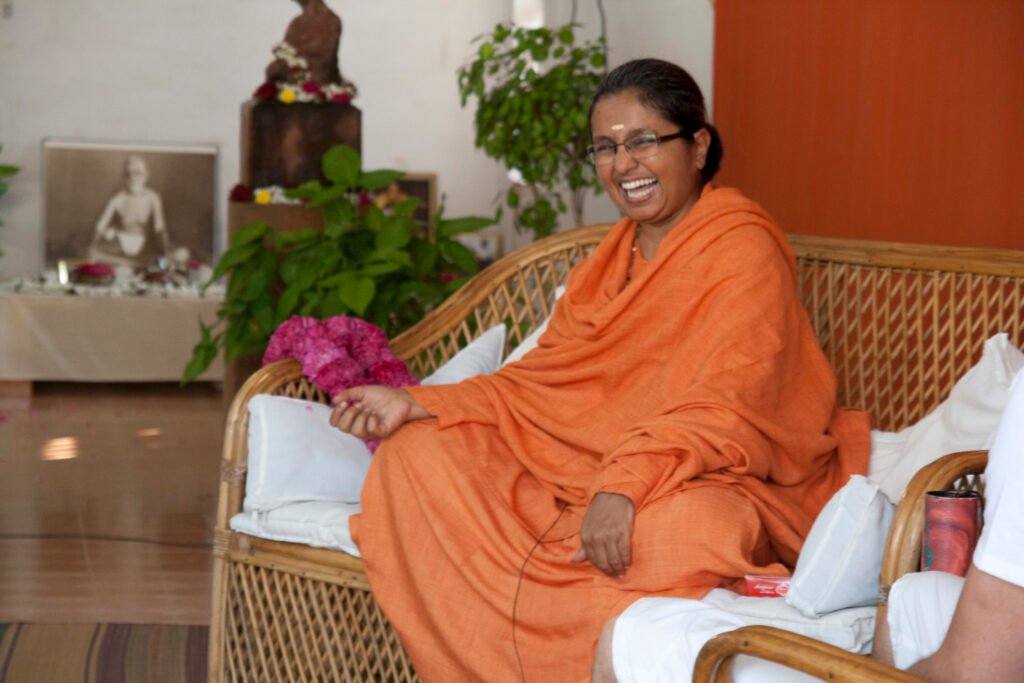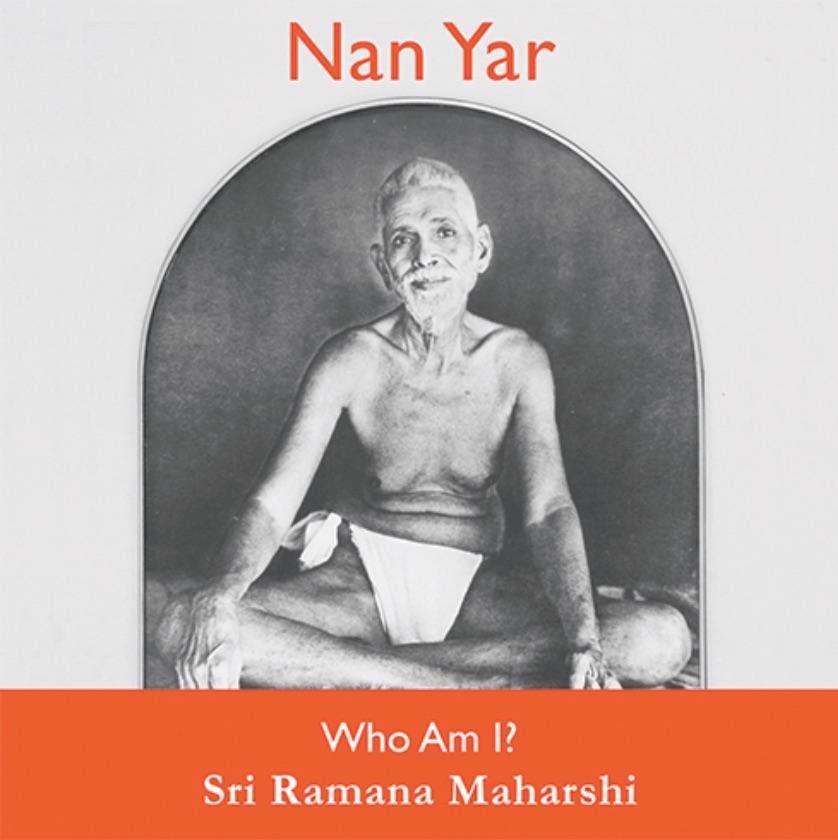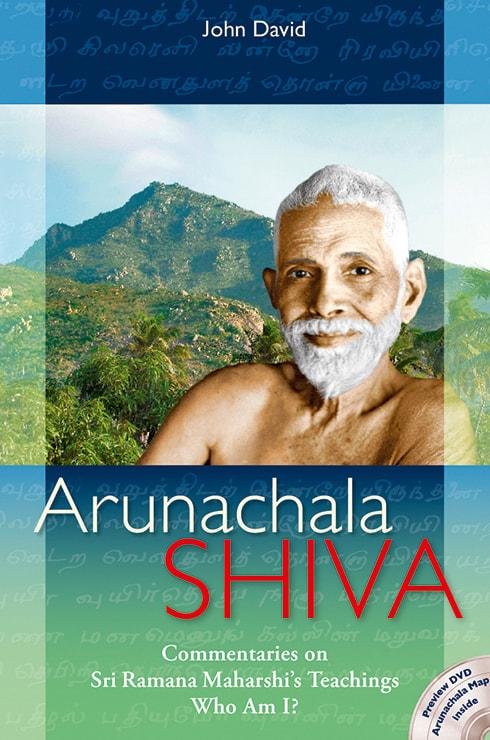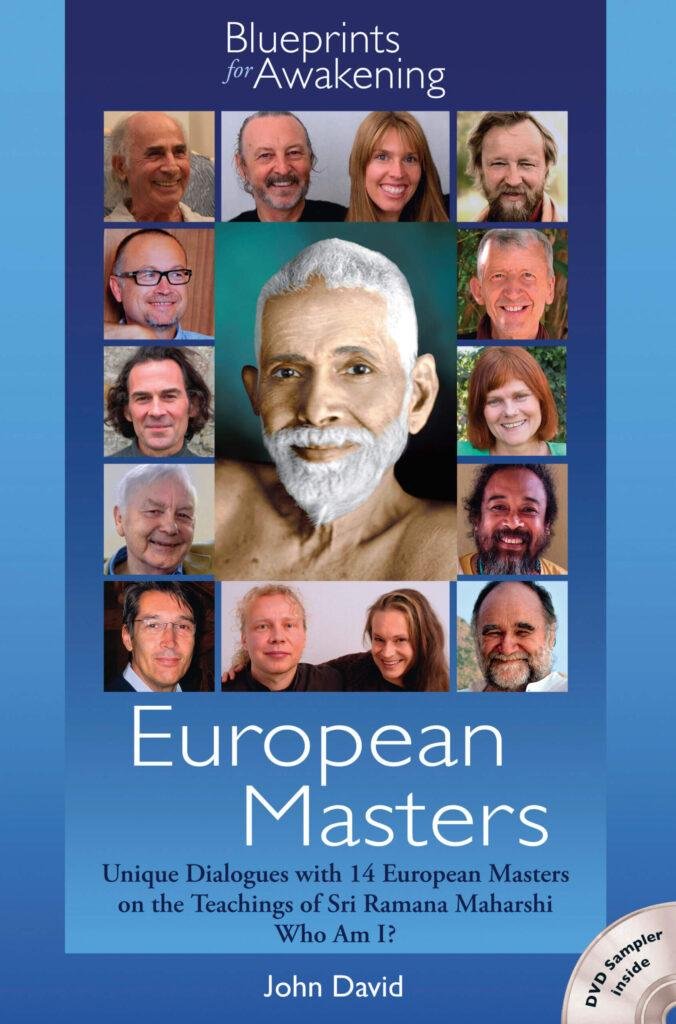Swamini Pramananda
The role of a guru is to remove Self-ignorance, to guide the person to Self-knowledge
– Swamini Pramananda
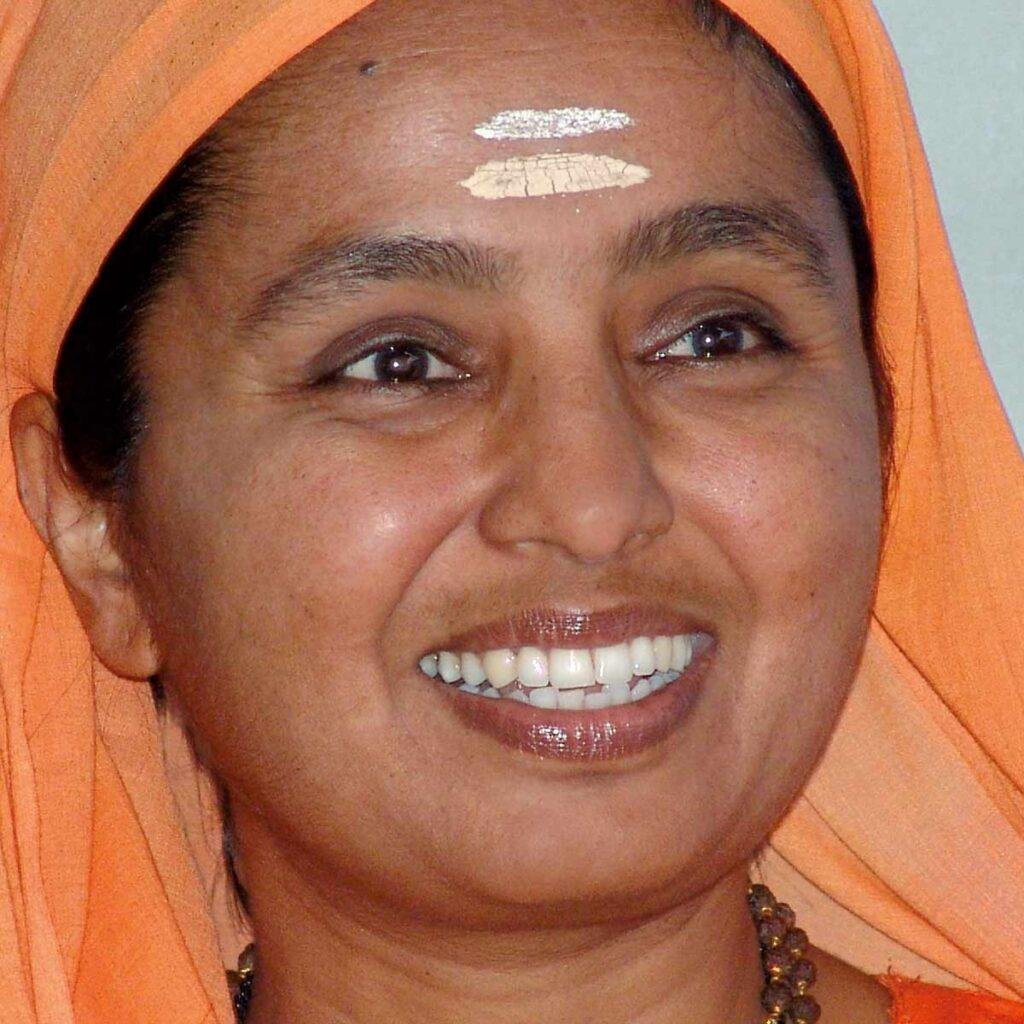
Full Interview with Swamini Pramananda by John David
Swamini and I felt an immediate connection as our names are so similar! Her loving and attractive personality touches everyone she meets. Swamini has worked closely with her teacher, Swami Dayananda Saraswati, for many years on projects in the West and also in India. She has recently taken a rest from a large teaching commitment and has taken time to be in a personal retreat. It has been wonderful to know her and I would like to thank her for the invaluable help with the Sanskrit (language of ancient Indian scriptures) in this book.
– John David
Questions and Answers
Sri Ramana proposed the fundamental question, ‘Who am I?’* Who are you?
Many Western seekers come to India looking for enlightenment as if it is an experience. What is enlightenment?
Are there any qualifications for enlightenment? Is sadhana (spiritual practice) necessary? If yes, what form do you advise?
Sri Ramana said that Self-enquiry is the most direct route to realising the Self. What do you say about Self-enquiry? How to conduct Self-enquiry?
When Sri Ramana was asked, ‘When will the realisation of the Self be gained?’ he replied, ‘When the world which is what-is-seen has been removed, there will be realisation of the Self which is the seer.’* What is the true understanding of the world? How to remove the world?
At the end of his book, Self-Enquiry, Sri Ramana says, ‘He who is thus endowed with a mind that has become subtle, and who has the experience of the Self is called a jivanmukta.’ Is this the state that can be called Self- realised?
He goes on, ‘And when one is immersed in the ocean of bliss and has become one with it without any differentiated existence, one is called a videhamukta. It is the state of videhamukti that is referred to as the transcendent turiya (state). This is the final goal.’ Is this the state that can be called enlightenment?
It appears essential to meet a guru and stay with that guru. Who is the guru? What is the guru’s role? How to recognise a true guru?
Sri Ramana’s devotees had tremendous devotion to him, and he to Arunachala. Please say something about bhakti, devotion, in the pursuit of awakening.
Seekers often have curious ideas about the enlightened state. Please describe your typical day and how you perceive the world.
You have given us a profound discourse on awakening. When you meet a passion for awakening, what would your short advice be?
What about vasanas, the tendencies of the mind? Must these be removed before Self-realisation can become permanent? Is it enough to achieve a sattvic (calm and peaceful) state of mind and to know one’s vasanas so that they no longer bind? How to remove the vasanas?
Swamini Pramananda teachings
Fundamental Inquiry
The core inquiry, “Who am I?” is emphasized as a means to explore and understand one’s true nature. This self-enquiry is seen as a gateway to deeper spiritual understanding.
Transformation and Evolution
Premananda discusses a two-stage process of spiritual awakening: transformation, where one begins to understand oneself and evolves past individuality, and evolution, leading to the recognition of one’s essential nature.
Role of the Guru
The guru, or spiritual teacher, is viewed as pivotal in guiding individuals on their spiritual journey. The guru helps in illuminating the path and removing ignorance, leading to self-realization.
Beyond Mind and Intellect
Premananda’s teachings emphasize going beyond the mind and intellect to experience a state of consciousness that is pure and uncluttered by mental constructs.
Devotion and Selfless Action
Devotion, or bhakti, is considered important, but it is seen as an inward journey. Selfless action or karma is a means of purification and an essential step towards spiritual progress.
Unity and Oneness
His teachings often highlight the theme of oneness and unity, transcending the limitations of individual identity and embracing a universal perspective.
appears in
Blueprints for Awakening – Indian Masters
Indian Spiritual Masters
John David has been interviewing sixteen important Indian Spiritual Masters. The result is a compendium of astonishing wisdom about the biggest secret of all times: the Nature of our True Self and how to realise it.
This boock answers all questions of the spiritual search and is for everyone who has an inner passion to find out who they are.
Published in two volumes.
Swamini Pramananda is part of Volume I.
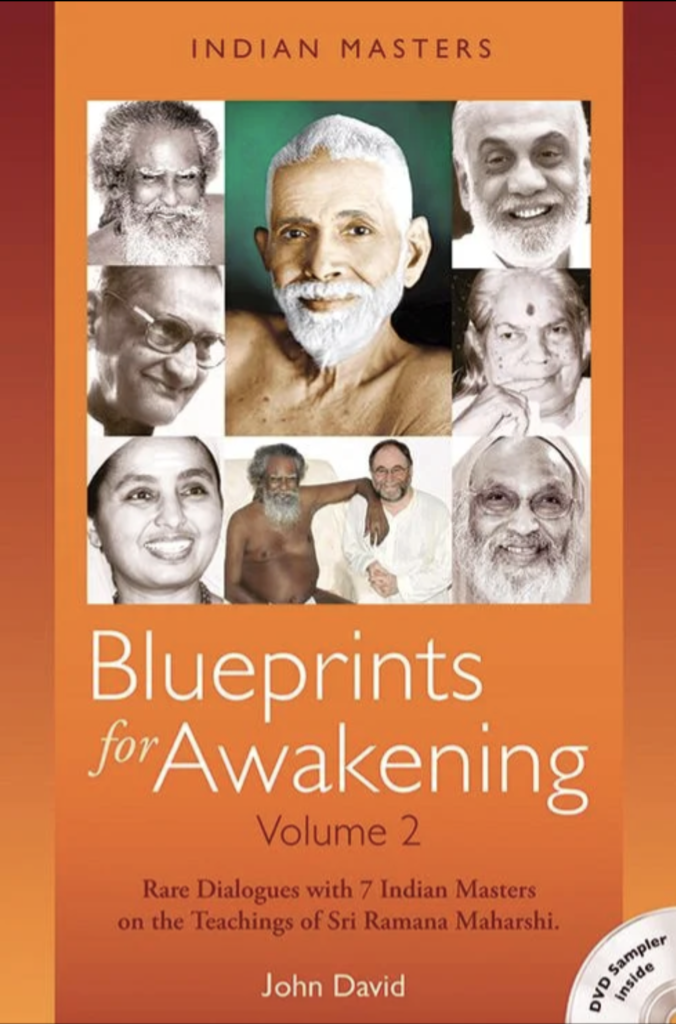
Other Ramana Maharshi Books
Aham Sphurana – A Glimpse of Self Realisation [Volume 1]
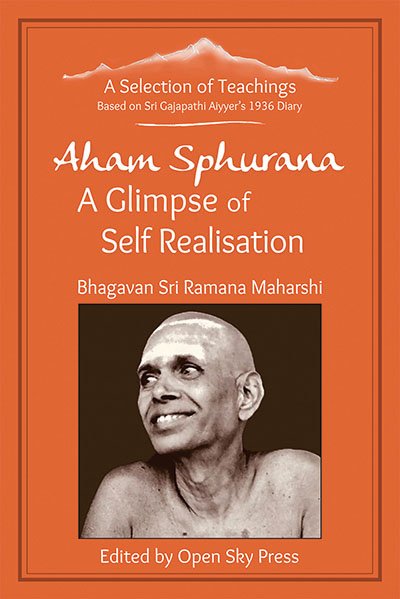
Fascinating dialogues and stories of Ramana Maharshi recorded by Sri Gajapathi Aiyyer in the summer 1936, at Ramana Ashram.
Vichara – Self Enquiry,
Who am I? [Volume 2]
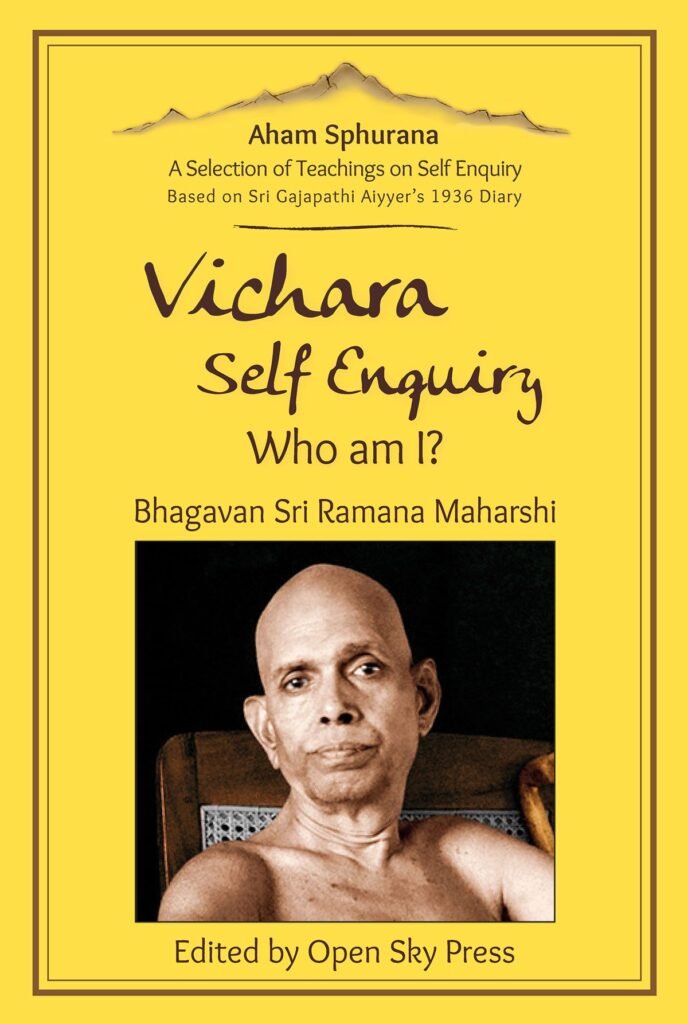
Vichara offers a fresh and focused exploration of Bhagavan Sri Ramana Maharshi’s most profound teaching: Self-enquiry.
Sharanagathi – Surrender,
Letting go. [Volume 3]
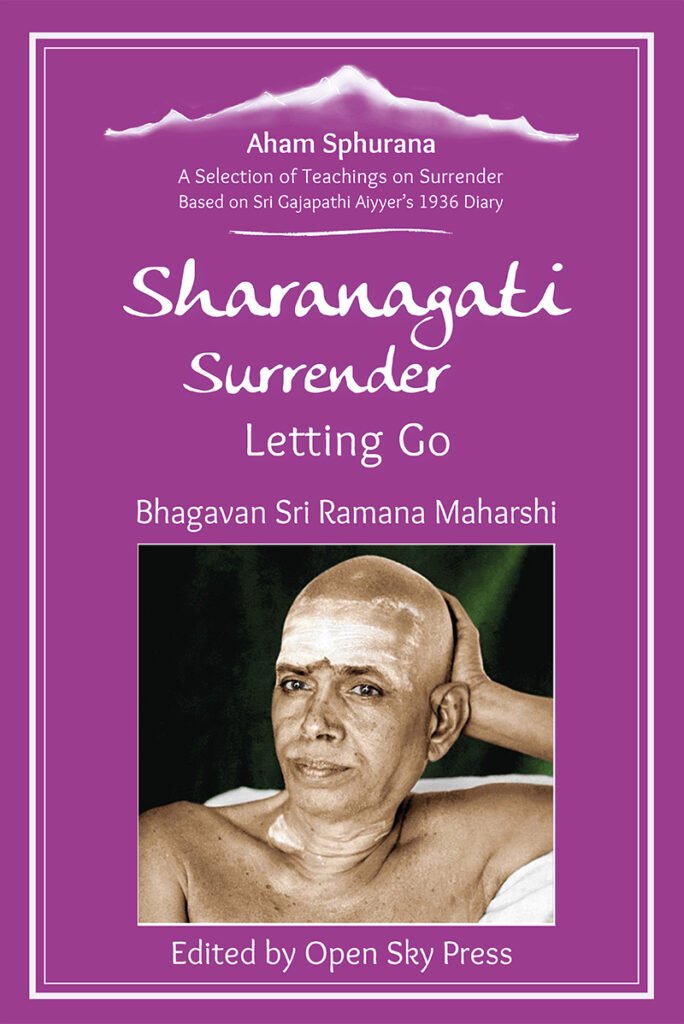
Sharanagathi explores Bhagavan’s direct and powerful path of dissolving the ego through surrender.
Biography
Swamini Pramananda Saraswati received sannyasa diksha from Swami Dayananda Saraswati, and has studied Vedanta and Sanskrit with him from a young age. She has been a resident teacher at Arsha Vidya Gurukulam, Coimbatore, India, where she taught courses in Vedanta and Sanskrit. She has great integrity regarding the traditional teachings, combining deep respect for the ancient heritage of India with a modern, inquiring mind.
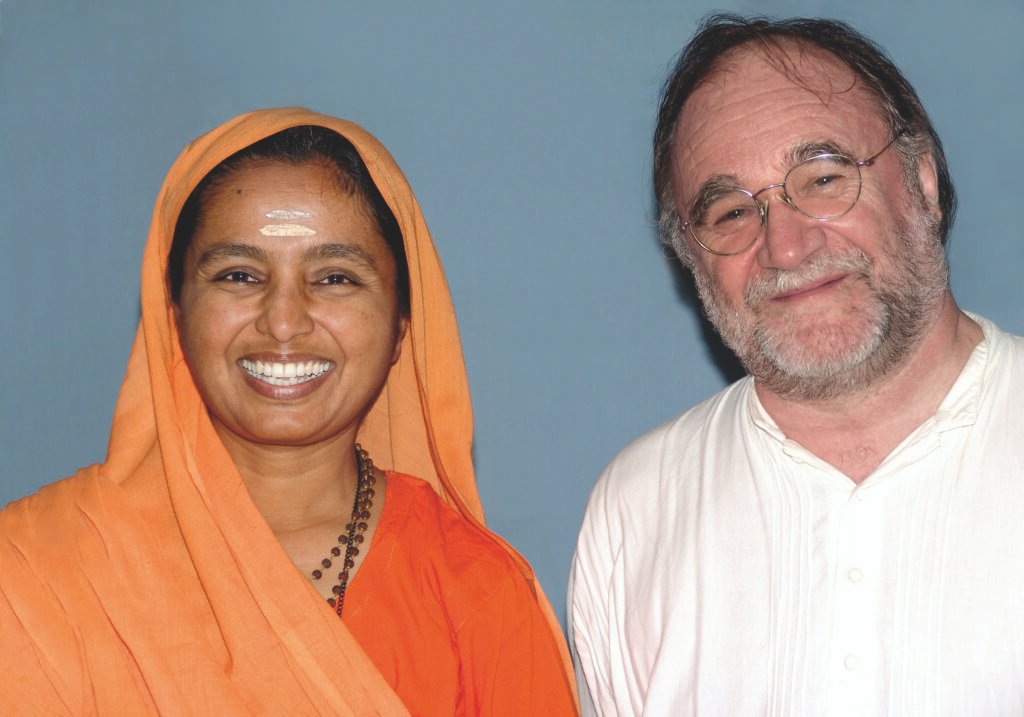
I would say that being with like-minded people, a support group, is conducive to knowing what is permanent and impermanent. If my friends are very worldly, that’s not creating a support group. I would suggest a life of learning, a life of self-reflection, of quietening the mind, settling accounts, minimising my transactions with the world.
– Samini Pramananda
Who is the guru? There is no guru in the same way that there is no father or mother. Guru is a role a person takes on for another individual who sees himself as a disciple to this person. A guru is only a guru to a person who sees himself as that individual’s disciple. There is no ‘the guru’ as such; this is one thing we need to know.
- Swamini Pramananda
